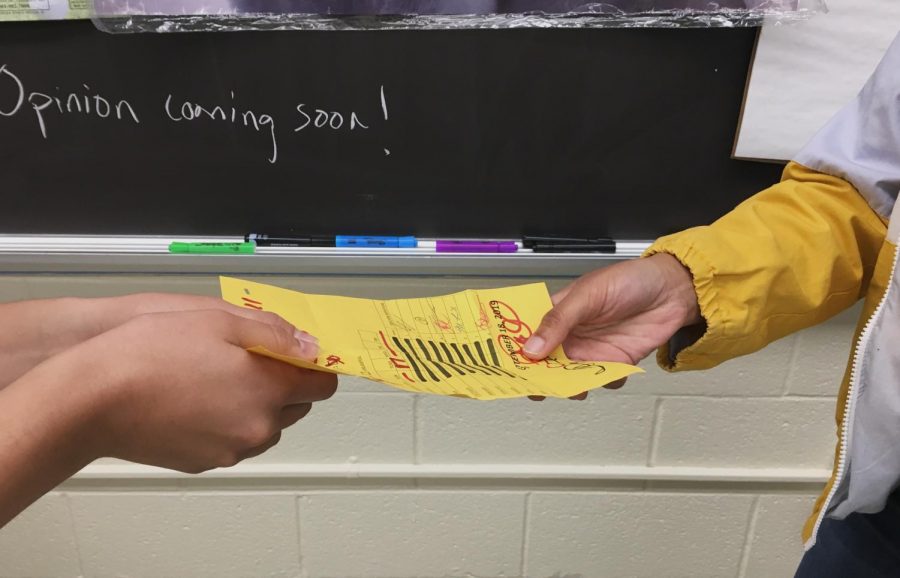ERHS Reacts to New PGCPS Attendance Policy
September 23, 2019
On September 3, students revisited school rules as part of a familiar routine. However, this year staff members and students were informed of the significant changes made to the updated PGCPS attendance policy.
According to Procedure Number 5113 as of August 26, 2019, chronic absence is “when a student misses 10% of school days, whether unlawful or lawful.” Students with chronic absences will be reported to the School Instructional Team in order to “address underlying problems,” and to the Pupil Personnel Worker if a pattern of truancy appears. “If a student has missed 3 school days in the quarter, the parent or guardian should be called or emailed by the teacher.” Teachers are also responsible for giving “failing grades for any day(s) of such absence(s)” and no longer have the leeway to make exceptions for students under any circumstances.
Ms. Greene has been working as Roosevelt’s Pupil Personnel Worker for two years.
In other words, her job is to reduce any barriers that might hinder the academic success of students who are at risk with discipline, academic, and attendance issues. She pointed out that the policy this year “states that at six absences the doctor’s note must be provided, otherwise the absence will be considered unlawful.” She explained that the consequences for unlawful and lawful are not the same. “Mainly for absences that have a parent or doctor’s note, we are just monitoring them to re-enforce it with parents, so that maybe they can change their appointments to a later time…unless we notice a pattern of false doctor’s notes or parent notes because we have a lot of parents who write notes to excuse the absences even though the child was not necessarily ill.”
“Another change is that we are no longer looking at consecutive absences, we are looking at individual or any absences.” However, under Section D of “Procedures,” the “Notification to Parents/Guardians regarding consecutive or chronic absences” heading is unclear when defining this new policy. “Yeah, that’s a mistake. That makes it really confusing because we are not using that anymore, we’re looking at individual absences,” said Ms. Greene.
Overall, she believes that the stronger enforcement of coming to school is a good idea in theory. “That’s important in order to become academically successful, but I also think that there’s more personnel that’s needed in order to fully enforce it. I mean it’s a great idea, we want kids to graduate but teachers are teaching and administrators are administering. And I actually have four schools that I have to do this for, so it’s hard. We need more personnel to help us more. But, I do what I can.”
Art teacher Ms. Vanick, who has been teaching for 6 years, thinks that “it is a great thing that we are trying to get kids to come to school.”
“Now, if you’re absent three times in any form, excused or unexcused, you have to make a call. It’s kind of awkward because when it’s an excused absence, you still have to make a call even though the child knows, I know, and the parent knows – but you still have to make a call. That means we have to make a lot more calls.”
She expressed concern with how absences are tracked. “Ideally the system would automatically recognize the fact that a kid was absent for three days, not teachers having to go through their list of kids who are absent three times because some of us don’t have a roster to see the past eight weeks, so it’s hard to keep track.”
Senior Katherine Sinuik thinks “a lot more students will come to school more miserable than usual,” especially if they are sick. “Not everyone can afford a doctor, and every time you are sick you don’t always go to the doctor…you’re basically paying to get an excused absence, but for some people, it’s not worth it.”
What is sure is that many at ERHS will be struggling with the possible consequences of the new policy.






Victoria Land • Sep 23, 2019 at 8:34 pm
fantastic article guys!! Very nice!